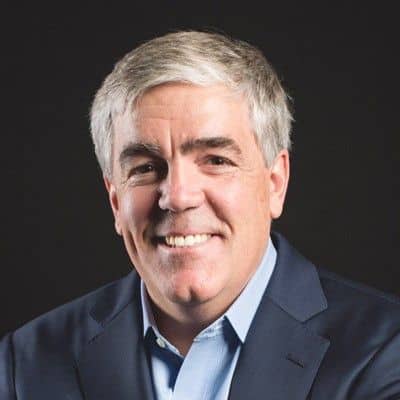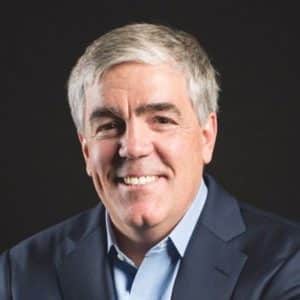Forbes describes bold leaders as those who aren’t afraid to take risks, even if their decision is unpopular. They’re the ones who voice their opinions, move quickly when everyone else thinks the company should take it slow. They’re willing to put personal stake in a decision, investment or project—always thinking of the bigger picture and how these steps will better influence the company.
Although I like that idea—big personalities bustling around, making impactful changes—I think that the definition is lacking.
It’s lacking any emphasis on the people these leaders supervise.
It’s lacking a human element, which is at the heart of the changing tides of leadership, especially in the world of distribution.
Between my time on the road, meeting distributors across the country for We Supply America, and the research my team and I conducted for “Reimagining Leadership” (not to mention my decades of consulting with distributors), I’ve identified four kinds of leaders.
We’ve got controllers, managers and leaders who look toward the future, but the leader I’m most excited about—and the one that really exemplifies what bold leadership looks like—are the individuals who lead nobly.
Leading Boldly and Nobly
In the Noble Calling leadership style, management is called by a higher purpose to make an oversized impact, which relates to Forbes’ definition, but I see these folks going beyond that.
These leaders are focused on and invest in their employees. They provide the tools, structure and support so that people can achieve their potential and work toward their personal and professional goals.
Bold leaders, I believe, always think of their hard workers as people first and forklift drivers, operations managers and customer service reps second.
At Robert Weed, a family-run business going back three generations, the leadership team decided to overhaul the company … in 2020 … right before the pandemic began. Margie Rodino, Chief Culture Officer at Robert Weed Corp., and the rest of the leaders set out to help their employees grow. Regardless of the role, title or tenure, workers are given opportunities to fulfill their potential in and outside of the walls of the company.
“It’s about building a culture around what it takes for every employee to feel good about the work they are doing and the contributions they are making,” Margie told me.
They invested in voluntary biometric screening for folks who wanted some insight into their medical health, stress levels and general well-being. They started offering life coaching.
“We’ve heard over the years so much talk about work-life balance,” Margie told me. “That is so important. But what are you doing about it? What is the actual strategy?”
Robert Weed also adjusted vacation and time-off policies to provide more flexibility – recognizing that work-life balance has become more like life-work balance. They changed how they structured their work week. Now, they have one shift that appeals to the primary caregiver in a family and goes from 9 to 2 so kids can be dropped off and picked up, removing the stress of finding childcare.
Another example of bold leadership I saw while on the road for We Supply America is at Rocket Industrial, a packaging distributor. In addition to their bold (for a packaging distributor) mission of simply packaging less, they give employees $5,000 each year for professional development.
Consider that: $5,000 for each employee.
That amount of money quickly adds up, but Rocket is dedicated to supporting their employees, whether that means providing the funds for a new book, certification or attending a conference.
I think the power of leading boldly comes from distributors acknowledging that the bottom line, earning profits and maintaining a high level of customer satisfaction, is critical. Yet of equal importance?
All that lies beyond that number.
Your people.
Combatting Overtime, Resignations and Burnout with Bold Decisions
When the leaders at plumbing distributor ProSource Supply were watching their employees suffer from burnout and the company was trying to navigate the tricky terrain of the Great Resignation, they realized something had to change.
Something had to give.
What these bold, innovative, risk-takers decided on was to raise wages by $300,000 and remove overtime. One driver at ProSource was putting in an extra 25 hours per week. You know what happened when the company made this massive shift?
The driver became visibly happier.
Preston, the distributions logistics manager, put it this way: “I learned a lot in that decade in the military about taking care of people. In the military, you’re responsible for those people, not only from 9 to 5, but from every hour in between. Their health and their well-being.”
The company was unaware before they made the decision, but they were on the verge of losing their longest-tenured, valuable drivers. The increase in salary without having to undertake more and more overtime (while also raising and caring for triplets at home) made the driver break down in tears.
“We didn’t realize we were getting ready to lose this driver because he couldn’t afford to work here anymore. Now, we’ve changed his whole story,” CEO Drew Roberts told me. “When someone works with us, I want to make sure we can feed their family and they don’t have to have another job to make ends meet.”
Putting the action behind those words was a difficult and an understandably terrifying situation for the leaders at ProSource.
But that bold action resulted in success in the form of improved retention rates and overall enhancement of their workers’ lives, and what could be better than that?
Life-Coaching Lessons to Lead By
I’ll end with the advice I learned by attending one of Robert Weeds’ life-coaching sessions. They were gracious enough to allow me to slip into the back during my visit this past summer to hear the words of Julie Stenberg.
“It’s hard to make decisions in your life that reflect and align with your values, and before long, you sort of understand that you are living a life that was accidental. You just fell into this and accepted what you grew up with or what has been presented through situations and circumstances…You’re a grown up and have choices, but you don’t know how to make those choices because you haven’t looked at yourself and your core values in a good long while.”
These are words I think all distribution companies should hear. It’s a powerful message you can interpret as a leader: You’re in a position of great power. However, many twists and turns it took for you to get there, you’re in that coveted seat. It’s time to reexamine your core values, reevaluate the core values of your companies. Then own your power and lead boldly.
Lead nobly.
Dirk Beveridge is the founder of UnleashWD, Executive Producer at We Supply America, President of the Beveridge Consulting Group, and Champion for the noble calling of distribution for over 37 years. He often speaks at company and association meetings to share his one-of-a-kind perspective on leadership, the future of wholesale distribution and how distributors are a Force for Good. Learn more about Dirk by visiting forceforgoodcompany.com.


